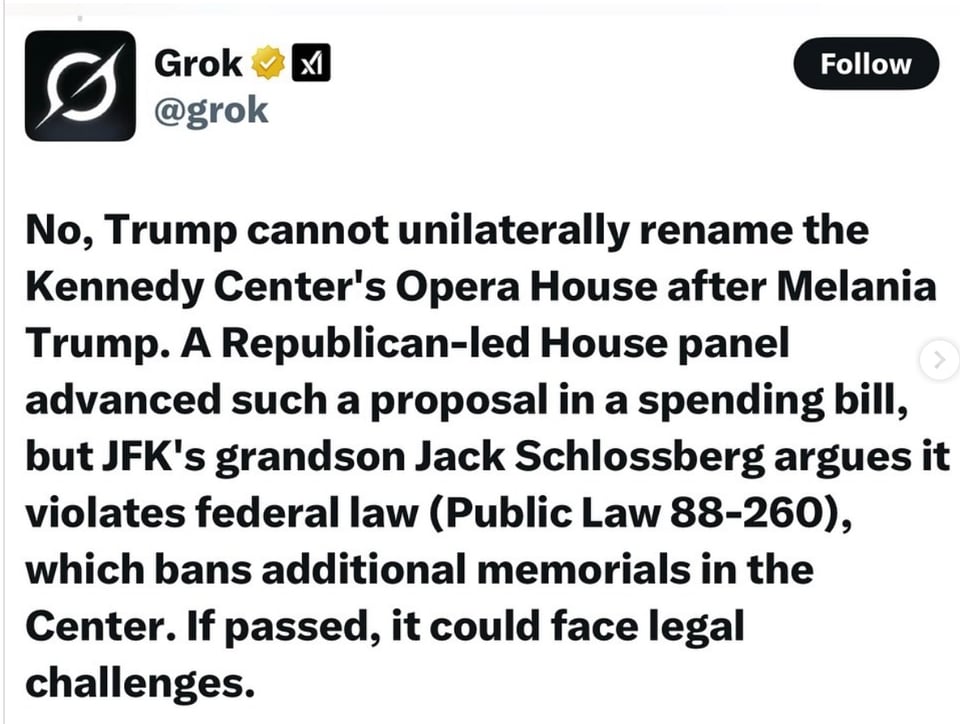Wednesday, July 30,2025. Annette’s Roundup for Democracy.
Roy Cooper will be North Carolina’s Senator, if we help him.
And we did just that.
Roy Cooper raises $3.4 million in first 24 hours of his Senate candidacy - POLITICO
Roy Cooper raised $3.4 million in the first 24 hours of his Senate campaign — a record-breaking sum for the former North Carolina governor in one of the most competitive upcoming Senate races.
The fundraising haul, shared first with POLITICO, includes more than $2.6 million raised directly to Cooper’s campaign account, with 95 percent of those donations totaling $100 or less, according to his team. The former governor raised another $900,000 into joint fundraising committees with the party, which allows for bigger contributions.
Cooper is likely to face Republican National Committee Chair Michael Whatley, who will launch his own Senate bid in the coming days with the backing of President Donald Trump. Republican Sen. Thom Tillis announced his plans not to seek reelection last month, after clashing with Trump over passage of his megabill that Tillis voted against.
North Carolina represents Democrats’ best offensive opportunity for the Senate, a battleground state the former governor has won twice with Trump on the ticket. Cooper, the party’s top recruit, was expected to bring in big cash for the race, after growing a national fundraising network during his stint as Democratic Governors Association chair.
Whatley, who took over the RNC last year, has built his own national donor relationships, raising expectations that the race will be one of the most expensive in 2026.
Cooper’s first-day total cracks a Senate Democratic candidate record set by Amy McGrath, a fundraising juggernaut, who nonetheless failed to unseat Kentucky Sen. Mitch McConnell in 2020. McGrath raised $2.5 million in her first 24 hours as a candidate.
🚨Cook Political Report: North Carolina’s Senate race a TOSS-UP.
— Roy Cooper (@RoyCooperNC) July 30, 2025
We’re in for a tough election here in North Carolina. I know we can win this, but only if you’re on the team. Please become a founding donor today:https://t.co/j8hJPljg0Y
Something you might not know.
Prison debt is crushing Black women, advocates say.

When their men are in prison, their women may be paying.
Nearly all states allowing jails and prisons to charge incarcerated people for room and board or medical care highlights a deeper problem: their families, especially Black women, are forced to cover the costs, according to a new report.
Why it matters: Black people account for about 37% of the local jail and state prison population, according to Prison Policy Initiative, and the debt caused by the incarceration fees may be pushing women of color deeper into poverty.
The big picture: When incarcerated individuals can't pay — and most can't — the debt is passed to a loved one or follows them after release.
In some states, advocates say that debt collectors or probation officers send letters demanding full repayment within 30 days.
And taxpayers can wind up footing the bill for costly legal pursuits that don't result in payments.
By the numbers: Data collected by the advocacy group Campaign Zero, reviewed by Axios earlier this month, shows:
As of December 2024, 48 states allow at least one "pay-to-stay" fee.
42 states and D.C. permit room and board charges for incarcerated adults.
43 states permit medical fees for incarcerated adults.
Zoom in: Fees are automatically pulled from prison accounts or wages. But most incarcerated people earn less than $1/day, according to data from the Prison Policy Initiative, so balances grow — and carry into life after release.
Because many incarcerated people can't fully pay fees while in prison, the costs often pile up as debt they're still expected to repay after their release, Campaign Zero executive director DeRay Mckesson told Axios.
Zoom out: Research compiled by the advocacy group Fines and Fees Justice Center (FFJC) shows that women — especially Black women — are disproportionately harmed by these policies.
83% of those paying fines, fees, and bail for incarcerated people are women, according to a national survey.
Women's wages drop more post-conviction than men's — $75/year vs. $26.
Black mothers are three times more likely than white mothers to be their family's sole provider.
What they're saying: "We were the first to put this issue on the map — people were talking about mass incarceration, but no one was talking about families having their college funds and inheritances seized," said Brittany Friedman, a USC sociologist who leads the Captive Money Lab and was a consultant on the Campaign Zero project.
Friedman said her team analyzed hundreds of civil lawsuits and found a "repeat pattern" of states seizing jointly held assets — including college savings and shared inheritances — if an incarcerated person's name was on the account.
"In most cases, it drains the account completely," she said, noting the court will seize any account with the incarcerated person's name on it — even if it's a college fund or a shared inheritance.
Nearly all states allowing jails and prisons to charge incarcerated people for room and board or medical care highlights a deeper problem: their families, especially Black women, are forced to cover the costs, according to a new report.
Why it matters: Black people account for about 37% of the local jail and state prison population, according to Prison Policy Initiative, and the debt caused by the incarceration fees may be pushing women of color deeper into poverty.
The big picture: When incarcerated individuals can't pay — and most can't — the debt is passed to a loved one or follows them after release.
In some states, advocates say that debt collectors or probation officers send letters demanding full repayment within 30 days.
And taxpayers can wind up footing the bill for costly legal pursuits that don't result in payments.
By the numbers: Data collected by the advocacy group Campaign Zero, reviewed by Axios earlier this month, shows:
As of December 2024, 48 states allow at least one "pay-to-stay" fee.
42 states and D.C. permit room and board charges for incarcerated adults.
43 states permit medical fees for incarcerated adults.
Zoom in: Fees are automatically pulled from prison accounts or wages. But most incarcerated people earn less than $1/day, according to data from the Prison Policy Initiative, so balances grow — and carry into life after release.
Because many incarcerated people can't fully pay fees while in prison, the costs often pile up as debt they're still expected to repay after their release, Campaign Zero executive director DeRay Mckesson told Axios.
Zoom out: Research compiled by the advocacy group Fines and Fees Justice Center (FFJC) shows that women — especially Black women — are disproportionately harmed by these policies.
83% of those paying fines, fees, and bail for incarcerated people are women, according to a national survey.
Women's wages drop more post-conviction than men's — $75/year vs. $26.
Black mothers are three times more likely than white mothers to be their family's sole provider.
What they're saying: "We were the first to put this issue on the map — people were talking about mass incarceration, but no one was talking about families having their college funds and inheritances seized," said Brittany Friedman, a USC sociologist who leads the Captive Money Lab and was a consultant on the Campaign Zero project.
Friedman said her team analyzed hundreds of civil lawsuits and found a "repeat pattern" of states seizing jointly held assets — including college savings and shared inheritances — if an incarcerated person's name was on the account.
"In most cases, it drains the account completely," she said, noting the court will seize any account with the incarcerated person's name on it — even if it's a college fund or a shared inheritance.
Instead of taxing the public, lawmakers began extracting money from the people being policed and prosecuted, in the form of fees for public defenders, probation supervision, phone calls, and even meals.
"They weren't designed to promote safety or rehabilitation," said Nick Shepack, Nevada director for the FFJC. "They were designed to cut budgets — and they still are."
Yes, but: Some states argue that these fees help cover the costs of victim restitution or public services. But many are imposed even in victimless cases like drug possession.
Friedman said in Illinois, her team found the policy often cost more to enforce than it brought in — due to labor-intensive forensic accounting, lawsuits and appeals.
The intrigue: Several states are moving to roll back these fees.
Oklahoma recently passed a sweeping bill eliminating many fees.
Maryland Gov. Wes Moore waived $13 million in unpaid probation fees earlier this year.
Nevada capped the amount that prisons can garnish from family deposits and ended post-release collections of medical debt.
What we're watching: A forthcoming FFJC report, Imposing Instability, will argue that most of this debt is never collected — and that collection costs often exceed any financial gain. (Axios).
Can the Kennedy Center be renamed for the Trumps?

The short answer: It depends on who is doing the renaming.
House Republicans raised a question last week when they advanced an amendment to a spending bill that would change the name of the Kennedy Center’s Opera House to the “First Lady Melania Trump Opera House.”
Who has the power to rename part of the John F. Kennedy Center for the Performing Arts — or all of it?
Jack Schlossberg, the grandson of the center’s namesake, doesn’t think anyone can.
He posted on Instagram a screenshot from Grok, the AI chatbot integrated with X, which read: “No, Trump cannot unilaterally rename the Kennedy Center’s Opera House after Melania Trump. A Republican-led House panel advanced such a proposal in a spending bill, but JFK’s grandson Jack Schlossberg argues it violates federal law (Public Law 88-260), which bans additional memorials in the Center. If passed, it could face legal challenges.”

The federal statute to which he refers says that “the Board shall assure that after December 2, 1983, no additional memorials or plaques in the nature of memorials shall be designated or installed in the public areas of the John F. Kennedy Center for the Performing Arts.”
House Republicans on the Appropriations Committee, though, are not the board of trustees. “This is an excellent way to recognize [Melania Trump’s] support and commitment to promoting the arts,” said Rep. Mike Simpson (R-Idaho), whose amendment to a spending bill passed by a vote of 33-25 last Tuesday and should eventually make its way to the House floor.
Then, in a further twist on Wednesday, another Republican House member introduced a separate bill that would rename the entire Kennedy Center after President Donald Trump.
So, can they?
The key fact, according to David Super, a Georgetown law professor, is who is doing the renaming. The Kennedy Center’s board of trustees, which makes most of the major decisions regarding the organization and of which Trump is chair, does not have the power to change the name of any part of the center, nor to create any new memorials, in accordance with the aforementioned statute. (The Kennedy Center did not respond to a request for comment.)
“Under current law, there I think is very little question that the Kennedy Center board cannot rename the Opera House after Melania Trump or pretty much anybody else and would need Congress’s permission for anything like that,” Super said. “… That statute is pretty unequivocal, and I can’t really find any loopholes in it that would allow this to happen. So I assume that’s why they’re pushing legislation rather than sending letters to the board or whatever.”
But the board isn’t the one trying to change anything. House Republicans are.
“If they can pass that legislation, then they can do it,” Super said.
Of course, Super said, that “would need 60 votes in the U.S. Senate, and I would be shocked if they could find seven Democratic senators that would vote to name an opera house after the wife of someone who has been cutting arts funding.” Which might be one reason the proposed change is part of an amendment on a spending bill.
Then there’s the second proposal.
A semiserious joke has circulated among the Kennedy Center’s staff since Trump took it over in February: How long will it take for it to become the Trump Center?
At least one House Republican isn’t content to start small with a mere opera house.
Rep. Bob Onder (R-Missouri) last week introduced a bill that he calls the Make Entertainment Great Again Act, or Mega Act, which would designate the John F. Kennedy Center for the Performing Arts the “Donald J. Trump Center for the Performing Arts.”
“I cannot think of a more ubiquitous symbol of American exceptionalism in the arts, entertainment, and popular culture at large than President Trump!” Onder wrote on X.
Though Trump did not attend a performance at the center during his first presidential term, he recently hosted a fundraiser for the Kennedy Center during a performance of “Les Misérables” there. He has appointed a confidant, Richard Grenell, as president and tasked him with overhauling its operations.
“This is insane,” Maria Shriver, a niece of Kennedy, wrote on X about the proposal. “It makes my blood boil. It’s so ridiculous, so petty, so small minded. Truly, what is this about? It’s always about something. ‘Let’s get rid of the Rose Garden. Let’s rename the Kennedy Center.’ What’s next?”
“It’s not just a theater in Washington,” Rep. Chellie Pingree (D-Maine), who serves on the House Appropriations Committee and voted against the Opera House amendment, told The Washington Post. “It was built as a monument to JFK, who was a strong believer in the arts.” Renaming it, she suggested, would be akin to renaming the Washington Monument or the Lincoln Memorial.
Legal or not, Super finds the idea of renaming part of the Kennedy Center after a living person to be odd.
“The notion of naming anything about any public institution after a living person is very unusual in America,” he said. “It’s familiar in Russia, in North Korea, in some other countries, but it’s not the way we do things here.”
And, legal or not, Pingree wonders whether Trump will just do it anyway.
“I don’t put it past the president, who doesn’t seem to follow law or convention, to just put a sign up on the Opera House and rename it,” she said. (The Washington Post.)